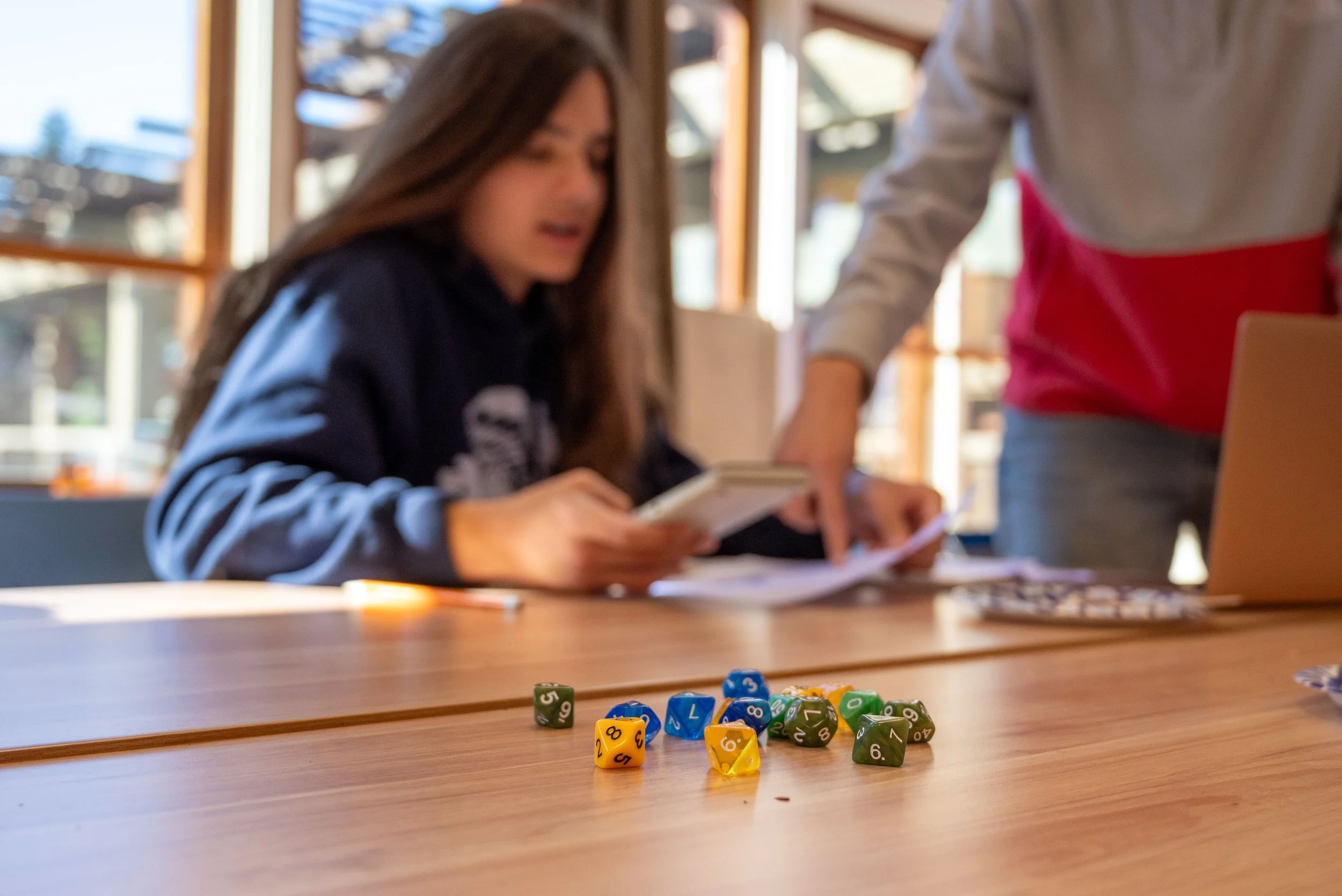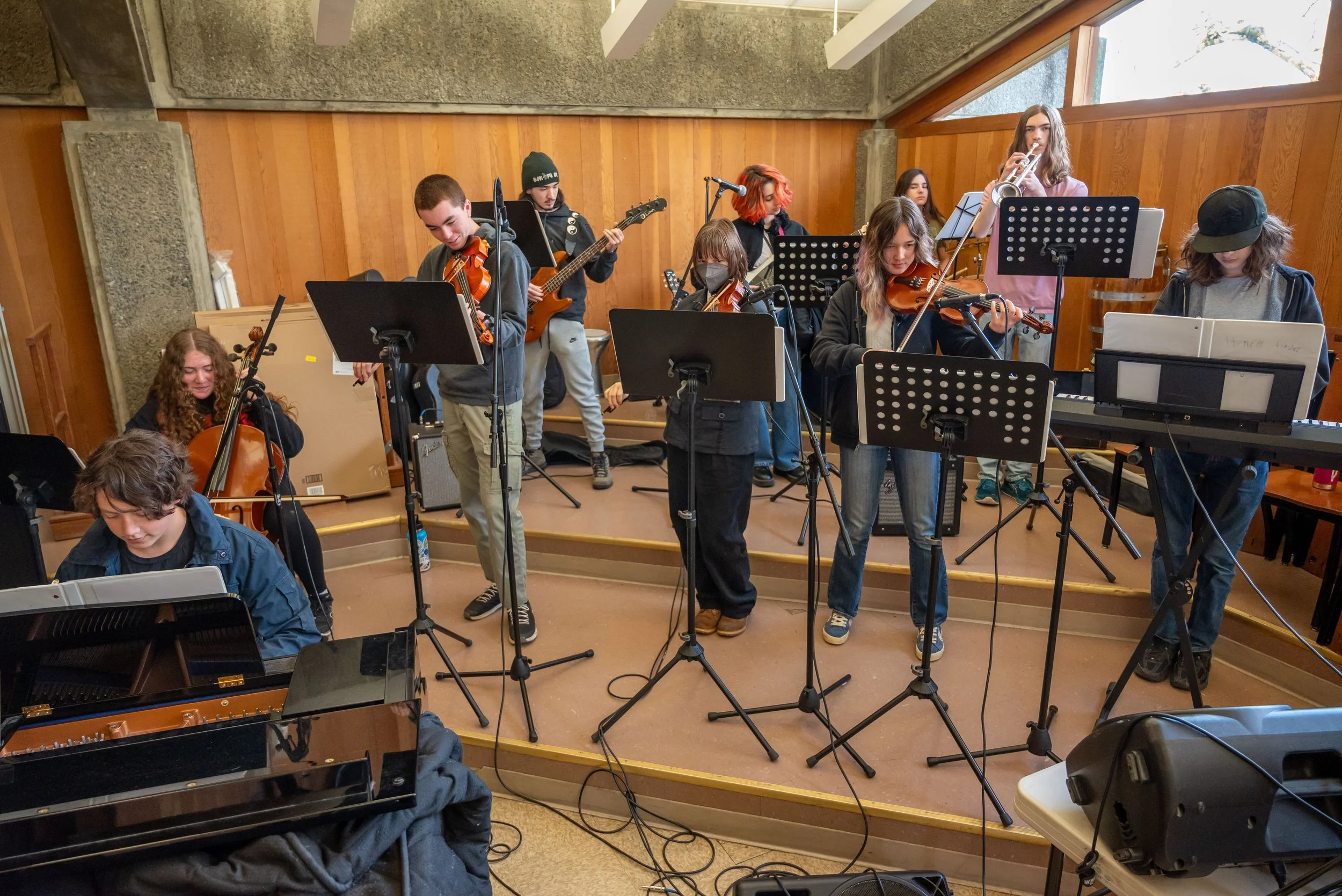Math
At Maybeck, we believe engaging in mathematics is about much more than learning content from a textbook. We collaborate with students and families to place students in the math course that is the best fit for them. This conversation begins with a math placement test that assesses for flexible thinking in problem solving, mathematical thinking, and content knowledge. As students progress through our course offerings, they build their mathematical skills, but also build their capacity to engage in both independent and collaborative problem solving.
Required Courses
At Maybeck, students are required to take three years of mathematics courses and must reach at least Algebra 2 in our traditional math sequence. Most students at Maybeck take four years of math, and many reach Calculus and beyond before graduating.
-
Algebra I
This course will focus on group work and understanding the “why” in mathematics. We will cover various functions and their real-world applications, with an emphasis on the process, rather than simply arriving at an answer. Student thinking will be highly valued and leveraged as we shift into the main concepts of each unit. We will cover various functions such as linear functions, exponential functions, and quadratic functions, as well as their applications.
Geometry
Geometry is one of the oldest branches of mathematics. This course is a comprehensive look at the study of geometric concepts including inductive and deductive reasoning, proofs, angle relationships, polygons, circles, congruence and similarity, area, and volume. In this course, students work toward higher level problem solving and developing their mathematical language to improve communication of the solution process.
Algebra II
Algebra II focuses on expanding the skills learned in Algebra I and provides further development of the concept of a function. Students will engage in function analysis and learn to represent information through graphs, equations, and input-output tables. Emphasis will be placed on problem-solving and defending solutions through verbal reasoning and group discussions. The course begins with a review of linear relationships and then explores a variety of topics including inequalities, quadratic functions, polynomial functions, and exponential functions. The class aims to provide a strong foundation for students to continue on to upper-level math courses.
-
Statistics
Statistics is the science of data. In this year-long course, students learn how to represent, interpret, and analyze data. The year begins with an overview of describing data, and then quickly moves into problem-solving-based learning through concepts such as normal distribution, regression analysis, probability, and hypothesis testing. Additionally, students learn how to use Excel to analyze real data sets and create graphs. The course includes multiple projects each semester, including a final independent project designed by each student. In May, students will have the option to take the AP Statistics exam.
Pre-Calculus
Precalculus is a high school math course that includes an introduction to calculus with functions, graphs, trigonometry, and rates of change. On a daily basis, students will work collaboratively with others as they use problem-solving strategies, complete investigations, gather evidence, critically analyze results, and communicate clear and effective arguments while justifying their thinking.
Calculus
This course is designed to meet the curriculum requirements for Calculus AB. The major topics of this course are limits, derivatives, integrals, and the Fundamental Theorem of Calculus, along with their application. We will investigate and analyze course topics using equations, graphs, tables, and words with a particular emphasis on a conceptual understanding of calculus.
Sample Math Activities
In Geometry, students measure tree heights on Maybeck’s lawn using clinometers and trigonometry.
In Statistics, students complete creative projects in which they gather data from the Maybeck community and perform statistical analysis to reveal hidden aspects of our community.










